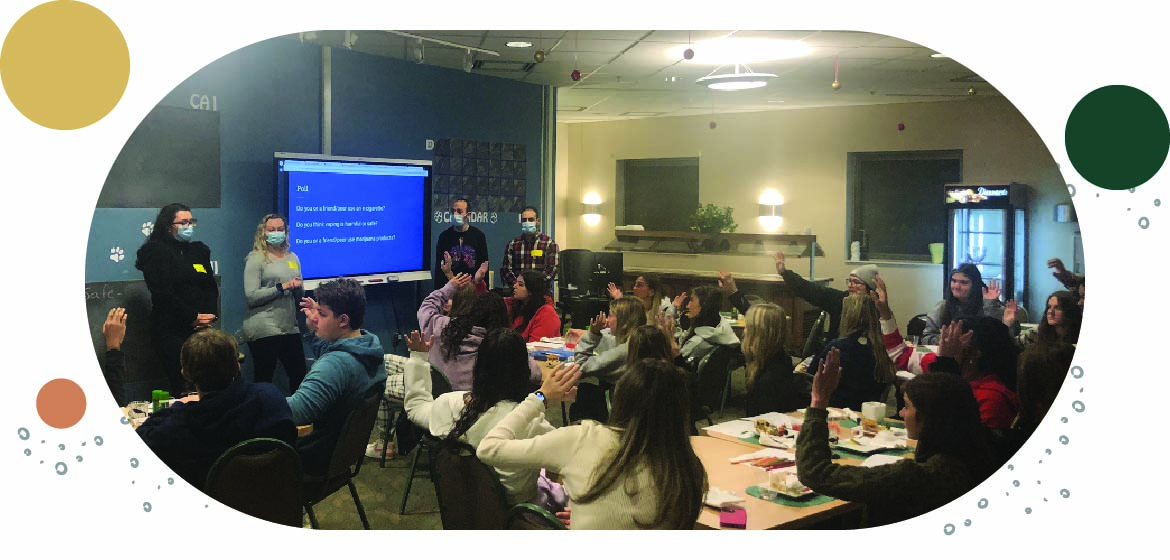College of Osteopathic Medicine Substance Use and Prevention in Michigan Schools
UN Goals: Good Health and Well-Being

High schools and even middle schools all over the United States have seen an increase in students abusing substances such as opioids, nicotine, and more. Michigan is no exception. As someone who has a long educational background in pharmacology and connection to the school systems in Southeast Michigan, Carolina Restini, Pharm.D., Ph.D., stepped right up to help.
Restini, an associate professor in the College of Osteopathic Medicine, was already connected to school districts in Macomb and Wayne counties through her larger project, which is aimed at strengthening the interactions between MSU and the community by connecting MSU health care students with high school students. When school leaders identified the need for a program that educated their students about substance use—with the ultimate goal of prevention—they turned to Restini. They asked Restini and her medical students to visit Southeast Michigan schools, many of which include underserved populations, and discuss the impacts of using substances, including vaping.
Each semester starting in 2020, Restini and several first- and second-year medical students visit six local middle and high schools, where her students discuss the consequences of substance use. Restini has found that since first- and second-year students are close in age to the students, they are more relatable, making the presentations more powerful.
Restini’s students are the key players; faculty involved in the Substance Use and Prevention (SUP) project only have a supervisory role. The MSU students are responsible for creating the presentations, distilling medical facts into easily digestible information, and interacting with the students. They are even involved in the IRB process for the SUP project. This gives students a great opportunity to apply what they’re learning in the classroom and teach students as they would their future patients.
“I saw a good opportunity for my students to enhance their communication skills—so teaching not only the damages or the problems, but teaching to give them power to make informed decisions,” Restini says.
Because of their role in the SUP project, Restini’s students have been able to receive scholarships, give presentations at conferences, and publish papers. However, their role in the project does not end once they become third-year students. Restini has them mentor and teach the incoming first- and second-year students who are applying to join the SUP project.
Restini and her students will continue the work on this project, which is now expanding to include East Lansing locations and some rural schools. The medical students will also be working with high school students enrolled in a summer leadership program to teach and empower them to talk about substance use.
Restini received two awards for her work in 2023: Distinguished Partnership Award for Community-Engaged Teaching from University Outreach and Engagement and the Transportation Support Award from CCEL.
Restini first connected with CCEL through workshops and has attended as many as she could in the past few years. CCEL’s Transportation Support Award provided Restini with funding to cover the cost for her students to travel to the Southeast Michigan schools.


